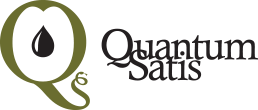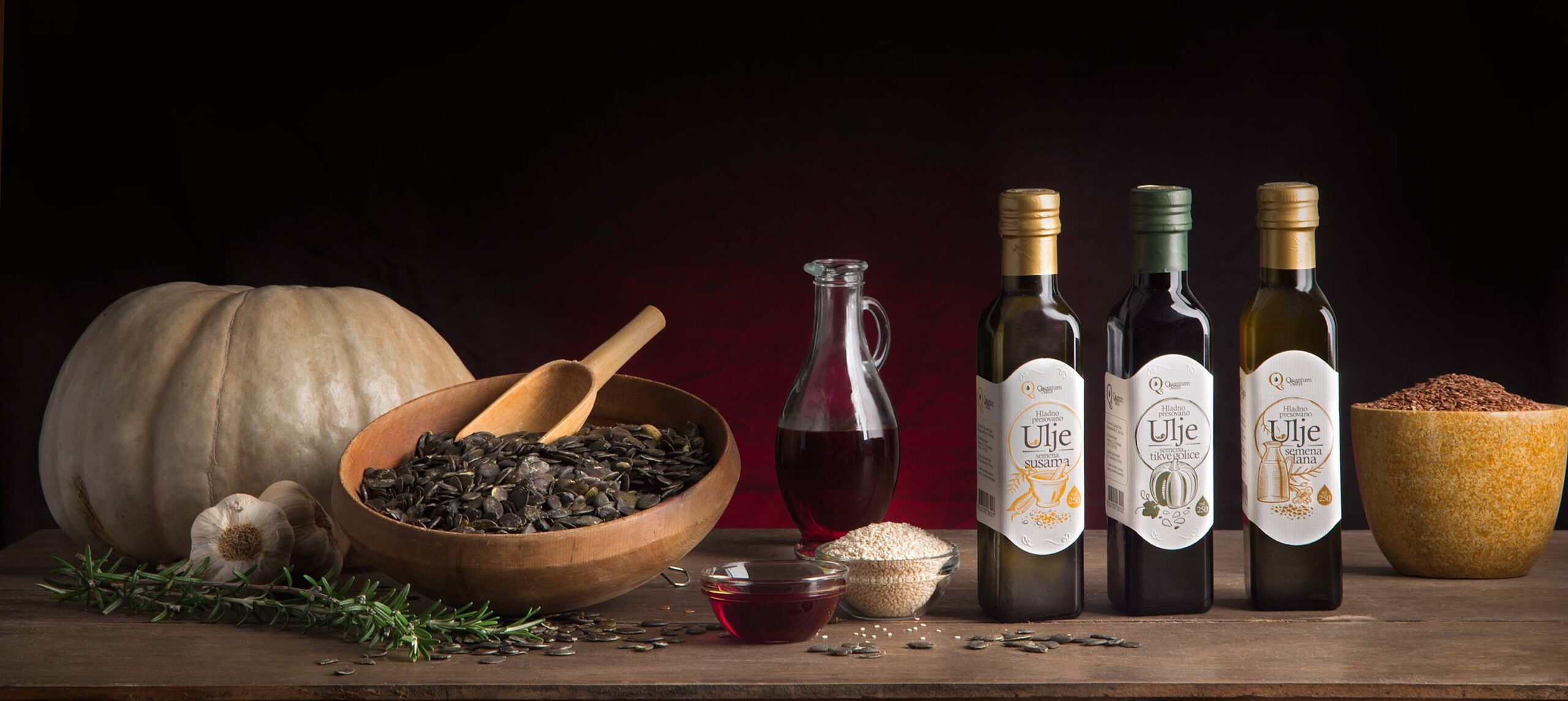Pumpkin seed oil is one of the special unrefined edible oils that is produced exclusively by a mechanical process and it can be classified into a group of functional food products.
Pumpkin is the collective name for a variety of plant species belonging to the family Cucurbitaceae (bushy plant). In Serbia, there are different names for pumpkins such as dulek, ludaja, Misirača, pumpkin, ajduk, sućurac etc. In some regions, the pumpkins of the same kind, variety or form have different names, and sometimes different kinds, varieties and forms are known under the same name. The table contains scientific (Latin), and the recommended popular names for the pumpkins grown in our region.
| Scientific name | Popular name |
| Cucurbita pepo L. | Obična tikva |
| Cucurbita maxima | Bundeva |
| Cucurbita moschata | Muskatna tikva |
| Cucurbita ficifolia | Smokvolisna tikva |
| Cucurbita mixta | Zimska tikva |
| Lagenaria siceraria | Vrg |
The common pumpkin is the perennial kind in Serbia and is characterized by numerous varieties and forms, among which the most famous are: oil pumpkin, the so called cooking pumpkin, zucchini, ornamental, krivošija, pravođija and others.
Oil pumpkin is a kind of pumpkin (Cucurbita pepo L.) grown for grain (Cucurbitae seed) which is rich in oil (Oleaum cucurbitae). Depending on the morphology of the grains there are two different kinds: oil pumpkin with its seeds in hulls and oil pumpkin with hull-less seeds.
Species of the genus Cucurbita and even the common pumpkin, where it the oil pumpkin belongs, originate from Central and South America. They were introduced to the Old World after the Columbus' discovery of America. However, pumpkin with hull-less seeds, in the form of natural mutations, first appeared on the territory of present-day Austria, Styria, by the end of the 19th century. This fact leads to the conclusion that the ordinary pumpkin originates from America, but its special form, pumpkin with hull-less seeds is a "European invention".
At the Institute of Field and Vegetable Crops in Novi Sad two varieties of pumpkin have been created. These are oil pumpkin shell "Olivia" and oil pumpkin with hull-less seeds "Olinka". Both types of seed are consumed as a delicacy or used as raw material for the production of oil. Pumpkin oil (incorrectly called pumpkin oil or pumpkin stone oil) is obtained by using screw presses (cold pressed oil) or hydraulic presses (virgin oil).
Cold-pressed pumpkin oil is produced by the direct pressing of raw - dried seeds, usually hull-less seed pumpkin in continuous screw presses. In the production of cold-pressed oils, oil temperature leaving the press is extremely important and should not be higher than 50 ̊ C. It is this oil production method way that provides oil which is much richer in bio active components such as vitamins, sterols, phospholipids, squalene, etc. which, together with certain fatty acids, are the basic factors of the nutritional value of pumpkin oil.
Pumpkin seed oil belongs to the group of oils of high biological value due to its favorable composition of fatty acids and various minor components with the overall positive impact on the human body due to various beneficial effects such as anti-inflammatory, diuretic (they induce urination), antimicrobial (they fight bacteria), blocking free radicals, etc.
Tocopherols and tocotrienols are very important ingredients of pumpkin seed oil. The total tocopherols in the oil of pumpkin seed variety Olinka were found in an amount of 650 mg / kg and in variety Olivija about 300mg / kg. The composition of tocopherols in the pumpkin seed oil is rather constant, and the most abundant is gamma-tocopherol, about 90%. Due to the specific composition of tocopherols, pumpkin oil has a very good viability.
The table gives an overview of the supposed mechanisms of action of various components pumpkin in the human body.
| Component | Effects and mechanism of action |
| Delta-7 sterols |
Anti-inflammatory Diuretic Inhibition of the attachment of dihidro-testosteron (DHT) to cell receptors Decreasing the amount of DHT in prostate tissue Normalizing the parameters of the functioning of prostrate |
| Selen | Anti-inflammatory |
| Unidentified components | Anti-microbic |
| Linolic acid | It is a precursor of prostaglandin E2 and F2α which help the regulation of the interaction of detrusorsphicter |
| Tocopherols(α, β i γ) |
Alpha tocopherol is a biological antioxidant Beta and gamma tocoferol strengthen connective tissue and muscles |
| Carotenoids | Bind oxygen free radicals |
| Magnesium | Enhances neuromuscular functions |
| Phosphorus | Decreases the risk from stone formation in the bladder |
Pumpkin seed oil has the following beneficial effects:
- • delta-7 phytosterol and selenium reduce the symptoms of benign prostate enlargement(benign prostatic hyperplasia - BPH) such as pain on urination, frequent urination in the night, the amount of residual urine;
- • unsaturated fatty acids lower increased cholesterol levels, slowing down the process of congestion of blood vessels, i.e. they are favorable to the maintenance of normal circulation in the brain;
- • antioxidants (vitamin E and A, selenium) slow down the aging process of human body
- • Pumpkin oil is reported to have the strengthening properties of potency, accelerating postoperative convalescence and improving the general condition of the body. Essential fatty acids in the oil are precursors of prostaglandins, which may have a desirable effect on the anti-inflammatory process and the lipid content in the blood.
- • Experiments on rabbits have proven that pumpkin oil have been very beneficial in the treatment of rheumatoid arthritis.
The selection of high quality raw materials of defined origin is of great importance for the production of oil that will meet the needs of consumers. Quantum Satis opted for pumpkin seed varieties of pumpkin with hull-less seeds Olinka with the geographic origin of the South Bačka District of Vojvodina, Serbia.
Quantum Satis cold-pressed oil is obtained solely by mechanical means, i.e. by direct pressing of raw - dried pumpkin with hull-less seeds continuous screw presses.
This oil is distinguished by a characteristic aroma, high nutritional value and beneficial effects on health. Due to the high content of various bioactive compounds, it is most commonly used for the prevention or alleviation of disease of the prostate and of the cardiovascular system.

